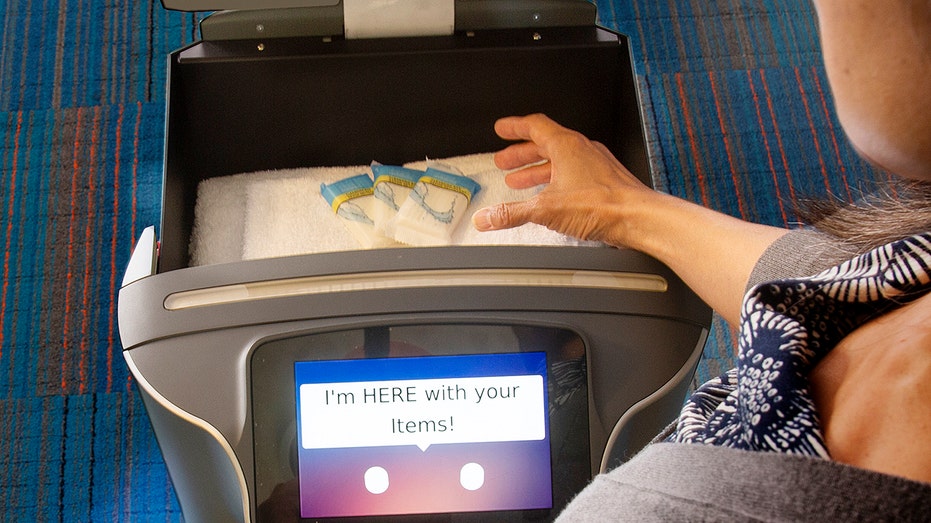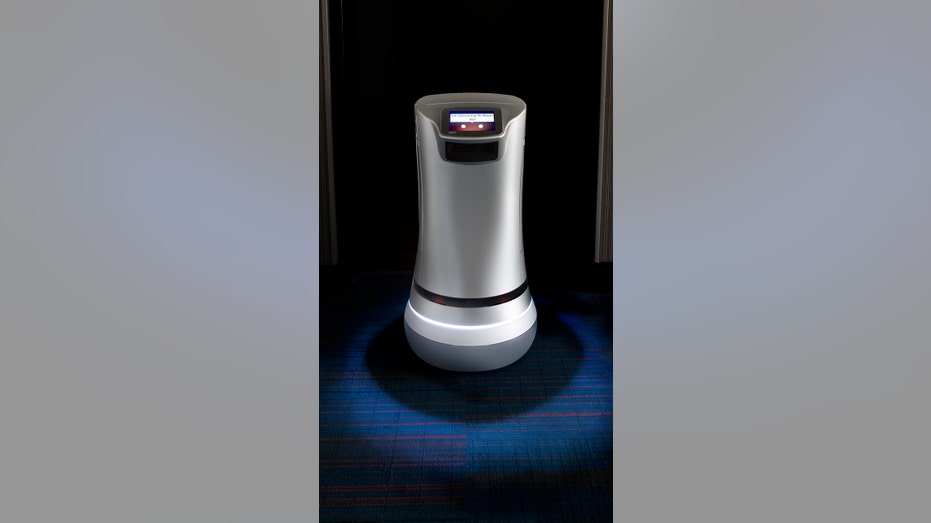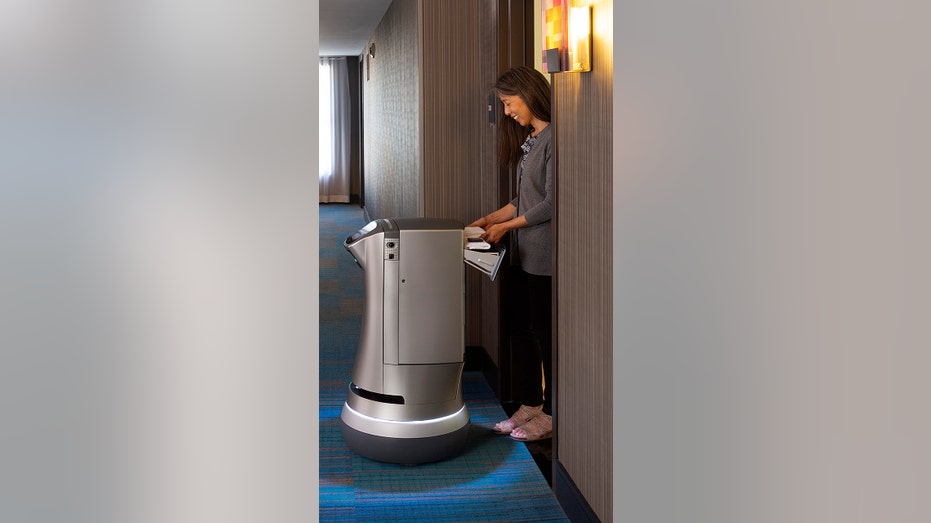Hotels from New York to California deploy room service robots amid virus-related labor crunch
Savioke CEO Steve Cousins says the robots 'enable service staff to spend more time with customers'
Room service robots are being deployed at hotels around the nation, aiding staff at a time when the industry is facing a labor crunch driven by the coronavirus pandemic.
Savioke Relay Plus robots take on simple tasks such as providing room service, freeing up hotel staff to focus on more important tasks especially during a labor crunch, CEO Steve Cousins told FOX Business.

Savioke's Relay Plus robots delivering items to hotel guests. (Savioke)
CLICK HERE TO READ MORE ON FOX BUSINESS
The robot's job is fairly straightforward: to deliver items from the front desk to guest rooms.

Savioke's Relay Plus robot. (Savioke)
They're not a replacement for workers but an added "arsenal" that hotels, especially during the pandemic, can rely on for extra support, according to Cousins.
"It's much more valuable for the front desk staff to be checking people in than to be running stuff up to a room," Cousins said. "If the hotel manager has to come out and help you do deliveries, they're not selling rooms, which is their primary job."
The robots, which are available 24/7, essentially "enable service staff to spend more time with customers and heighten employee job satisfaction," he added.
GET FOX BUSINESS ON THE GO BY CLICKING HERE
The company deployed an earlier version of the robots, named Relay, in 2014, but they weren't able to use the elevators by themselves. It was a roadblock Cousins said the company had overcome with their latest version, the Relay Plus, which can handle pushing the elevator buttons.

Savioke's Relay Plus robots delivering items to hotel guests. (Savioke)
The newer version launched in December. Since then, the company has received orders from hotels spanning the nation, from California to New York.
The general manager of the Dream Hollywood hotel in Los Angeles, Vaughn Davis, said their room service revenues have more than doubled in the past year and a half.
HOTEL INDUSTRY STRUGGLING WITH 'LABOR CRISIS'
"By taking over the low-value delivery tasks, our service staff can now concentrate on high-ticket, high-reward deliveries like champagne and special orders," Davis said. "This division of labor actually helps us with talent acquisition and retention as well because team members don't get burned out doing less interesting tasks."
Cousins expects its fleet of robots around the nation to double by next year.
"I just think that, you know, we have a labor shortage that's not going to just go away. And we have a population that wants to do more meaningful work," he said. "And so adding robots to their arsenal of what helps them do their work, I think is a good thing all around."





















